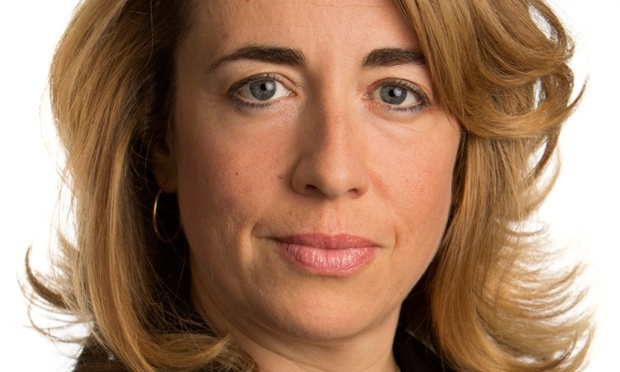On Friday the Guardian announced that Katharine Viner, deputy editor of the Guardian and editor-in-chief of Guardian US, was appointed their new editor-in-chief.

The decision was not a surprise to those following the media group’s search for a new chief editor.
In December, I was asked by Josh Jackman of the The Jewish Chronicle to share my thoughts on the announcement that Alan Rusbridger was stepping down as the newspaper’s editor-in-chief after more than 20 years at the helm, and how the appointment of a new editor may affect their Middle East coverage. I told Jackman that the Guardian was institutionally biased against Israel and I wasn’t optimistic that a new editor will have a positive effect.
Specifically, I noted that Viner, one of the top early contenders for the job, could possibly even push the media group to adopt an even more pronounced pro-Palestinian stance.
My concerns were largely based on the fact that Viner was the co-creator of an anti-Israel play called ‘My Name is Rachel Corrie’, a piece of theatrical agitprop about the International Solidarity Movement (ISM) activist killed in March 2003 while attempting to stop an IDF anti-terror operation in Gaza.

In a review in 2005, Times of London culture critic Clive Davis characterized the play as “an element of unvarnished propaganda…with no attempt to set the violence in context”. “We are left”, he complained, “with the impression of unarmed civilians being crushed by faceless militarists.” At one point in the play, Corrie declares, “The vast majority of Palestinians right now, as far as I can tell, are engaging in Gandhian non-violent resistance.” As Davis noted, “Even the late Yasser Arafat might have blushed at that one.”
On March 16th, 2013, Viner tweeted this:
10 years ago today, Rachel Corrie, 23, was crushed to death beneath an Israeli bulldozer in Gaza. Thinking of her and her family this Mar 16
— Katharine Viner (@KathViner) March 16, 2013
Tellingly, the Guardian’s coverage of the Rachel Corrie saga – including the civil law suit brought by the parents of Corrie – has been similarly obsessive, tendentious and breezily unconcerned with the facts. (A complaint we filed with the Press Complaints Commission in 2013 regarding an extremely misleading Guardian editorial prompted editors to add an important addendum.)
Moreover, as noted on these pages several years ago, Rachel Corrie is not Ms. Viner’s only Middle Eastern heroine. In 2001 Viner interviewed the terrorist Leila Khaled, opening her article with words which seem to glorify terrorism.
“In a way, the whole story is in the ring. The iconic photograph of Leila Khaled, the picture which made her the symbol of Palestinian resistance and female power, is extraordinary in many ways: the gun held in fragile hands, the shiny hair wrapped in a keffiah , the delicate Audrey Hepburn face refusing to meet your eye. But it’s the ring, resting delicately on her third finger. To fuse an object of feminine adornment, of frivolity, with a bullet: that is Khaled’s story, the reason behind her image’s enduring power. Beauty mixed with violence….And the ring? “I made it from the pin of a hand grenade – from the first grenade I ever used in training,” she says. “I just wrapped it around a bullet.”
With the departure of Rusbridger, the Guardian could have chosen an editor committed to abandoning the radical left ideology which has informed so much of their visceral hostility towards Israel, and taken steps to repair their fractured relationship with the British Jewish community. Instead, they hired as chief editor an ideologue more closely aligned – at least on the Palestinian issue – to the editorial style of Electronic Intifada than that of a ‘respectable’ British newspaper.
Related articles
- No BBC coverage of French findings regarding Arafat’s death (bbcwatch.org)



